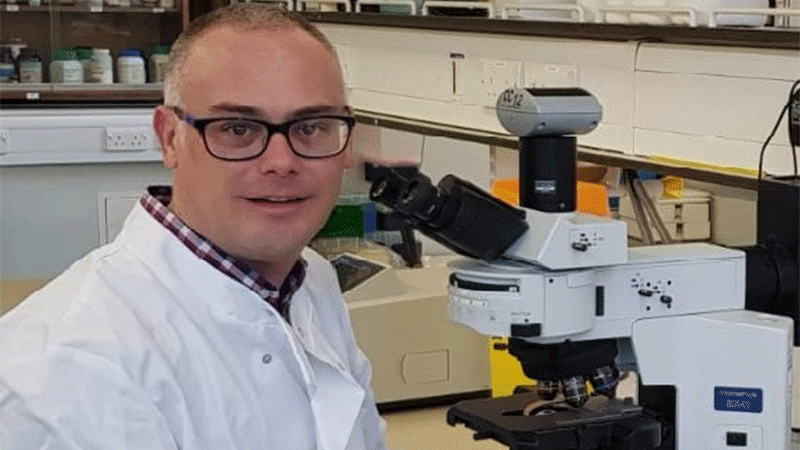Dr David Gaze, Senior Lecturer in Chemical Pathology at the University of Westminster, has been elected a Fellow of the Royal Society of Biology (RSB) for his work on tackling cardiovascular disease and his dedication to teaching.

The RSB is a single unified voice for biology that advises the government and influences policy, advances education and professional development and encourages public interest in life sciences. Fellowship of the RSB (FRSB) is the most prestigious grade of membership, awarded to members who have demonstrated a notable contribution to the fields of biological research, teaching or the application of biology.
Dr David Gaze is the Director of Employability in the School of Life Sciences and Course Leader of the Biomedical Science MSc course. His academic expertise lies in cardiovascular pathology, focusing on improving ways to detect heart disease early. He teaches on both undergraduate and postgraduate courses and supervises research projects, ensuring that students are actively engaged with real-world scientific challenges.
He has established strong connections with NHS hospital trusts, national and international universities and the bioscience industry, which support both his research and teaching. His work has contributed to numerous peer-reviewed publications, such as Annals of Clinical Biochemistry and Clinical Chemistry and Laboratory Medicine, and he is regularly invited to present at scientific meetings and professional conferences.
Dr Gaze is also a Fellow of several learned societies and has contributed to the advancement of clinical biochemistry and chemical pathology education through professional training, mentorship and curriculum development. Dr Gaze’s research is also part of the Ageing Biology and Age-Related Diseases Research Group at the University of Westminster led by himself, which focuses on understanding the biological mechanisms underlying ageing and age-associated diseases.
About the Fellowship, Dr Gaze said: “It is an honour to be elected as a Fellow of the RSB, awarded based on my academic research in cardiovascular pathology and research-informed teaching on undergraduate and postgraduate courses in the School of Life Sciences. This recognition extends to those students who undertake research projects with me at all levels of study and to my collaborative partners in the NHS, other national and international academic institutions and the bioscience industry.”
Dr Gaze’s work directly contributes to the United Nations Sustainable Development Goals (SDGs) 3: Good Health and Wellbeing, 4: Quality Education and 17: Partnerships for the Goals. Since 2019, the University of Westminster has used the SDGs holistically to frame strategic decisions to help students and colleagues fulfil their potential and contribute to a more sustainable, equitable and healthier society.
Learn more about the Biological and Biomedical Sciences courses at the University.


